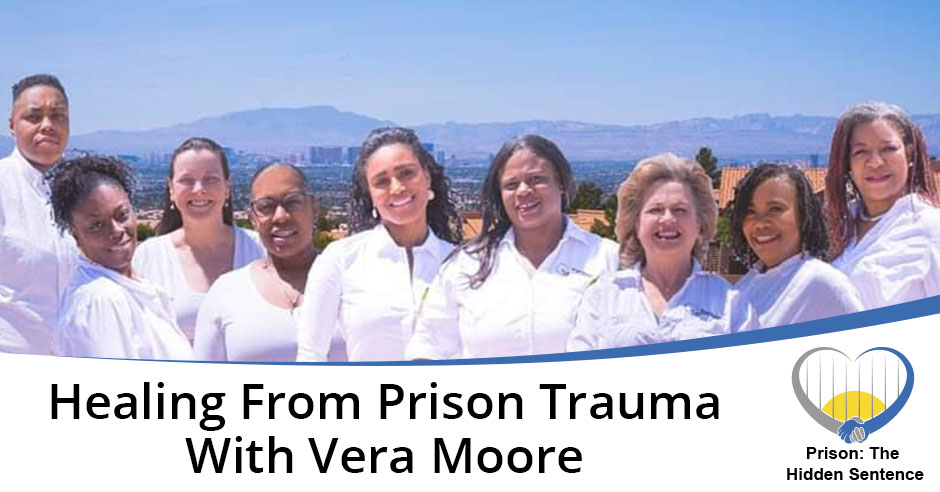
Incarceration can be traumatic to everyone involved. However, you can get your life together, and your life can flourish no matter what happened to you in the past. Vera Moore started True Beginnings to assist formerly incarcerated people and their families rebuild self-esteem while reclaiming their rightful place as contributing members of society. Vera is a formerly incarcerated woman and community activist who made it her mission to support and guide other women through the process of reentry from a trauma-responsive gender-informed approach. Today, she joins Julia Lazareck to discuss the importance of family members’ support and heart-felt apologies for changed behavior. Listen to this podcast to learn how you and your loved ones can heal from trauma by following her journey.
—
Listen to the podcast here:
Healing From Prison Trauma With Vera Moore
I’m here with Vera Moore, the Founder, and CEO of True Beginnings. I met Vera several years ago when she moved to Las Vegas. She shared her vision with me. She wants to take her nonprofit, True Beginnings, which she started in Virginia, to Nevada. Her vision was to have a place for women transitioning from prison could learn, grow and flourish with a focus on addressing their trauma. Now, True Beginnings offers education and training to the ladies that are returning citizens. Vera also opened housing for women called Divinity House, where they have a safe place to live and thrive while integrating back into society. Vera, welcome, and thank you so much for being here with me.
Thank you for having me.
It’s my pleasure. It’s always so good to see you, even though we are remote.
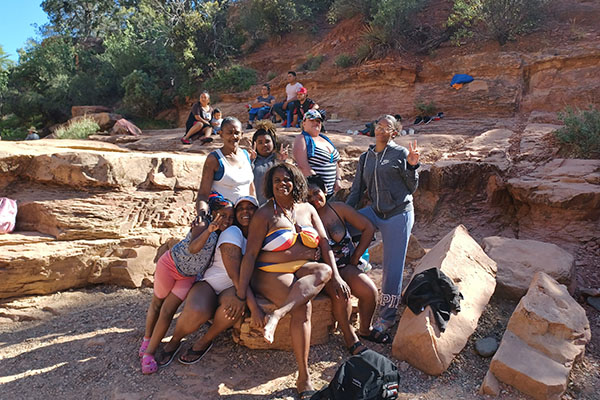
The changes of the world.
At least we can connect with more people.
I believe that that is the best thing going about all of this.
There is no box on the contract that would ask you anything about your past. You can live your life wholeheartedly. Share on XI agree. We can reach people all over. Let’s start with your journey. What was the journey that led you to create True Beginnings? What does it mean to you?
To be completely honest, after I’ve done a lot of thought about this, I went to prison in 1997. When I came home, I had no idea that there were so many barriers to people that have been incarcerated. It was like something that I did. I went and did my time for it. I came home, and my mom had my children at the time. I had made up my mind that, “I was going to be better. I was going to do better.” As I found employment, which was amazing.
Back in those days, background checks weren’t something that was taken very seriously. I found employment, making pretty good money. When I went to get housing, I called the one place that seemed appropriate for me and my children so I could get my kids back from my mother. The lady in the middle of the conversation didn’t even see me. It was via the phone. The lady asked me, “Have you ever been incarcerated?” I thought, “That’s a weird question. I’m looking for housing.” It sparked me to tell her my story.
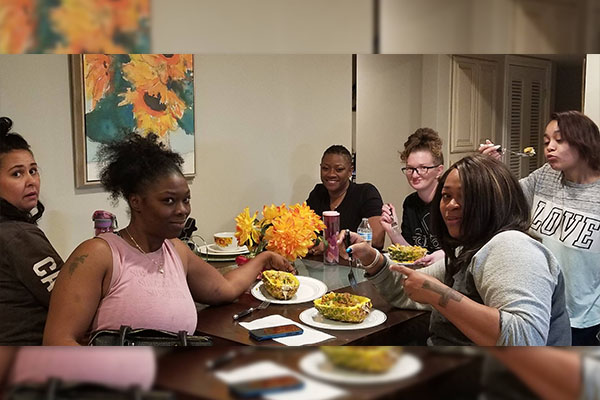
Unfortunately, she had no compassion. She was like, “I’m sorry. We do not rent to people that have been incarcerated.” I started finding that to happen, and that was very common. I started finding that being to be very common throughout my journey. It was a real hindrance in getting my kids back. It was a hindrance and my self-esteem. It made me feel rejected and I thought, “How am I ever going to manage this and get my children back and save my mom from having this burden on her, as she had already raised me? How am I going to do that?”
If it weren’t for my mother, at the time, having friends that had an investment property, I would not have had housing back then because I would have given up and turned right back around to what I was doing. That was a blessing that my mom had friends that had an investment property. They were willing to take a chance on me but I tell you. It was so disheartening. As the years have gone by, getting my life together, still going in and out of jail, still being on and off drugs.
Every time I decided to do something different, housing was no longer an issue because I would lead with transparency and deal with personal homeowners as opposed to property managers and how to deal with policies and procedures. I found a loophole, and when I decided that I wanted to get my life together wholeheartedly, I became a real estate agent because what I realized was there was no box on the contract that asked me anything about my past.
There are so many ifs and possibilities, but your goal now is to do the best you can and learn how to be better. Share on XThat was the thing that would catapult me into society and make me feel normal. I bought a home. I became a realtor and got my kids back. We lived happily ever after for some time. I moved to Virginia in 2012. My daughter was having my grandbaby, and I had never gone without employment. It wasn’t something that was on my mind. Living in Virginia, I saw so many people that struggled with finding employment. There were some young men that were behind my house selling drugs. I went and asked them, “What can I do for you to get you from being back here? I want my granddaughter to be able to play in the yard.” They told me that there are no jobs out here for felons, so it is what it is.
I told them I beg to differ. I bet them, “If I can find you a job, then will you stop selling drugs behind my house?” That’s how True Beginnings was born. I started advocating on behalf of other people to employers. I wrote a manual called the ex-offenders toolkit, which has since been changed to the FIP kit, which is Formerly Incarcerated People, to teach people how to figure out or how to market their most valuable asset and to know for a fact what type of job they should be looking for.
We want people to be focused on careers, the workforce, and not surviving. That’s a hard place to be in. As I’ve moved through employment, I was looking for another house. It was very much in the forefront of my mind that I could not apply for a home regularly in this new place because of my background. I had to go and address the personal homeowner again. I thought there were so many people that I was working with, and they didn’t have homes. That hinders them from finding employment. I should open housing, and so I did.
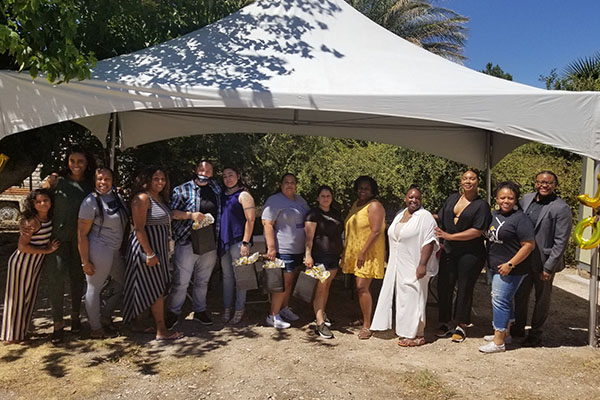
What I realized was that in offering housing, first and foremost, along with support networks and open arms, not asking for the rent right up front, and giving them the opportunity to get back on their feet, those people would flourish. Over the years, I started True Beginnings in 2013 and opened my first house in 2014. I had four homes by 2015. We made all those homes permanent housing in Virginia and moved here to Las Vegas in 2016. I got stable with True Beginnings in 2018-‘19 and opened our first house in 2020. Now, we have a 63% success rate.
The women are sticking and staying and doing what they have to do. I’ve chosen to work with the women predominantly because the children, grandparents, aunts, and uncles are attached. Someone has got to take care of the kids. Eighty-four percent of the women that become incarcerated are mothers. If we heal the moms, then we have the ability to heal the children and those family members who have offered services and support along the woman’s journey.
That would create a ripple effect in our community and stop mass incarceration. It would heal so many children and stop the pipeline from elementary to the prison population. It would give seniors the right to live again, especially in low-income communities. The thing that stuck with me the most was that my mother stopped living because she started taking care of my kids. Not breathing, living but she wasn’t doing things that made her happy. She didn’t travel. She worked hard. She was always worried about their doctor’s appointments. If they’ve gotten home from school, okay, and I was not available, nor did I have a capacity to help in that fashion.
Just because you don't agree doesn't mean that there should be an argument. Share on XI’ve spent a lot of time with True Beginnings trying to heal my family, my grandkids, and a role model for my mother what it looks like to be healthy so that she can get her life together. All through my journey now, I feel amazing that my children have all gone to college and have their own lives. My mother is traveling, dancing, playing cards, and is very healthy. I’m proof that our service works by providing trauma-responsive care as the root.
I’ve met some of your kids, and they are very well adjusted. You’ve done a great job with them. I know that you have a good relationship with your mother now. Can you talk a little bit about that relationship? How has that grown since you moved forward with everything that you are doing?
What I found was that in my addiction and my bout with incarceration, I wag my finger at my mother a lot. I blamed her for a lot of my decisions and choices from the way that I had grown up. It was very hurtful for her. She always retaliated. We were in this perpetual state of violence against one another for a very long time. When I realized that was not going to stop and my kids were caught in the middle, I decided I was going to do my own work on me, and I did.
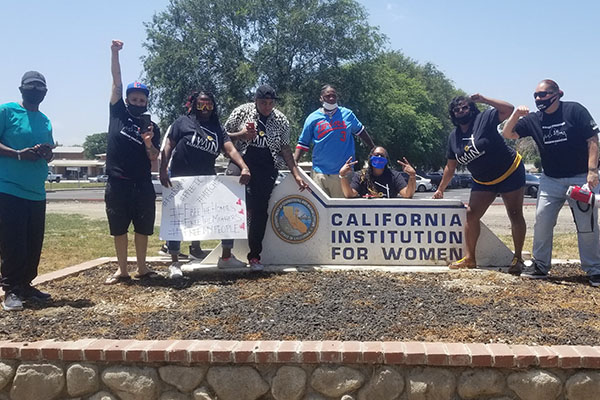
I started doing trauma training, trauma treatment and trauma coaching, life coaching, and all the things to get myself situated and get over it. I wrote a book so that I would purge and then start living. What I did was I reached back to my mom with compassion. I understood that she had done me a great service. My kids could have been in foster care. They could have been separated. They could now be on drugs themselves. There were so many ifs and possibilities. My mother stepped into that space for me, I realized that I owe her to become healthy, happy, and forgiving. Even though the cycle started in a way that was very painful for me, it doesn’t have to end that way.
My mom did the best that she could with what she knew at that time. My goal is to do the best that I can and to learn how to be better. Our relationship is we don’t talk every day but when we do talk, there’s a lot of I love yous. She is still very much opinionated. I know how to back off just because you don’t agree doesn’t mean that there’s an argument. Let her have her way. She’s old and senile. I’m kidding.
Sometimes, we practice picking our battles with other people and we forget that our parents also need that leeway. I have been operating in a space of a teenager and not an adult. Now that I’m operating as an adult, full of fledge, I look at my mom and embraced her. I try to educate her on the way but she learns more from me by my behavior’s actions. I learned so much more from her by watching her embrace life and love it now.
The best way to support someone on their journey after incarceration is to seek healing. We're often so frustrated with the situation that we can't see past that. Share on XI want to send kudos out to all the moms out there who have children that are incarcerated that have their family members coming home and the strength and stepping up like Vera’s mom did. Also, the women that are returning citizens are coming out of prison, building their lives, and taking care of the children like Vera. Kudos to all of you that are making a positive movement.
All the wonderful things that you are doing, Vera. You are helping a lot of people. I’ve met the women that are in your classes, your education, your trauma workshops, and your house. You help them so much. One of the questions I have for the women that are in your programs. We have a lot of families that come and talk to us and have questions about that transition. How can families support their loved ones that are in programs like yours?
I would say the best way to support someone that’s on their journey is to also seek healing. A lot of times, we are so frustrated with the situation that we can’t see past that. What we end up doing is something will happen. It’s not necessarily a direct situation dealing with the person or our loved one but something will happen. Say a grandmother is taking care of the grandbabies. She knows that her child, her daughter is in treatment. The grandbaby breaks a vase.
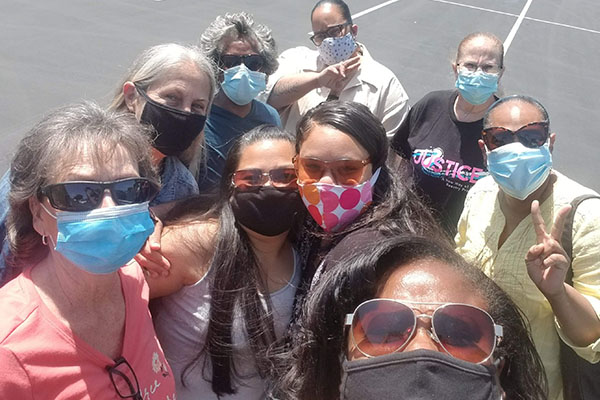
The vase is very sentimental because having to take the babies to school, pick them up from school, help with childcare, help with homework, get them fed, get them to bed and start the cycle all over again. It can be very taxing. One day when this vase gets broken, the grandmother immediately is upset, and the daughter calls in, and she wants to talk to the kids. The grandmother immediately goes in on the daughter, and nothing big has happened but she’s so frustrated, and rightfully so. The mother, in the very early stages of treatment, becomes frustrated.
Now, there’s this back and forth because they are both learning to accept each other where they are. They are both projecting from things that they have to deal with and dealt with. They are not dealing with one another. They are dealing with the situations but not dealing with each other. When you start looking at your loved one who’s returned home and want something good for them and for you to be the outcome, seek healing, treatment, and understanding. I’m going to be on the other side. I’m going to be helping those women that come home that is attached to those families.
The families also have to do some work. I know the families are like, “I have to do the work. Why would I have to do the work? I’m not the one that went to prison. I’m not the one.” Trauma has a root, and it doesn’t necessarily have to start with that family member but there’s such a root that there’s something rude before the woman went to prison. If we can address that as a family and realize that maybe something happened a long time ago to this person that I love because something happened to me a long time ago but I dealt with it okay.
We all need co-dependency assistance, but we should also learn to be independent, love one another, and not depend on each other. Share on XMaybe this person that I love doesn’t have the capacity to deal with it in the way that I did. Be compassionate and empathetic and seek your own healing and work with that loved one by accepting them right where they are. Don’t engage in a lot of the back and forth because it does leave scars for both members. We are in the business of healing.
I’m going to put a plug in here for a Prison the Hidden Sentence workshop because a lot of things that you are talking about with family reentry, trauma, grief, and all of that. There’s a lot of support that Prison the Hidden Sentence is providing. I agree that there’s healing on both sides. There are also support groups like Prison Families Alliance. I encourage the families to get support from others and to heal because when we bring the whole family together, the person that has been incarcerated, the family on the outside, there’s a healing on both sides, and that’s so important. Good points.
The one thing that I am working on now is you go through all of these different layers like Shrek. Like, pull back all the layers from this onion. It is like an onion because every time you get to a new layer, you are crying your eyes out. You are like, “Why me?” As I’ve gone through all these different layers, I’m at this point where I have to recognize what codependency looks like and define it for myself, my mother, my other family members, and my children.
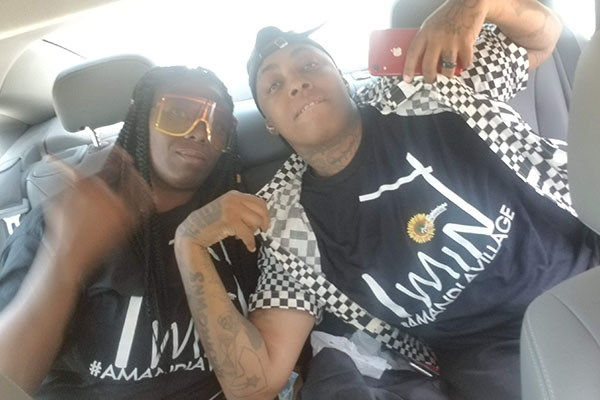
We all need codependency assistance. Learning how to be independent and still love one another and not depend on each other to meet each other to get through so many different aspects of our lives. I love that Prison Ministries is doing the support groups, the networking, and the educational classes for the family members because all the responsibility cannot lie on this one particular individual.
It has to be taken upon as a family, as a unit, very inclusively and unified if we want to create change, and don’t want our family member to go back to jail, prison or be back on drugs. Even if it’s selfish, even if you don’t want to take care of those kids no more, then be supportive of that family member so they can get their kids back, and you can go on and live your life the best way that you want to. Sometimes, we bite the bullet until we can get what we want. That’s on both ends. I had to grit my teeth a lot for my mother. I’m like, “I’m not going to say it,” then I will sigh after the conversation.
I realized that it was less energy for me to grit my teeth and move past it than it was to argue whatever point it was, whether she wanted a sandwich with one piece of bread, and I thought she should have two. It never even mattered. It’s where I wanted to put my energy. I have been choosing for the last few years to embrace my mother as opposed to rejecting her. The women at Divinity House encourage them to build strong, healthy relationships with their children, parents, grandparents, family members, sisters, and brothers but not to engage in negative energy.
Sometimes we bite the bullet until we can get what we want. Share on XLike one lady, her daughter wasn’t speaking to her. We encouraged her, don’t try to formulate a relationship. Don’t try to force her to have a conversation with you. You pick up the phone one day, she answers the phone and you say, “I love you.” You leave it at that. You tell her, “I thought I wanted to say.” You get off the phone. You do this a couple of times, a few times, and pretty soon, she’s going to be like, “What else do you have to talk about? What else?” Now there’s room for conversation.
Don’t ever go back to, “You did this and that to me.” No. “I want to let you know that I love you, and this is what I’m doing for myself.” The family member usually goes like, “We are not talking about the past.” Which women that have been on drugs or in prison will usually bring the past up a lot because that’s the thing that is driving us. We don’t talk about the past. We talk about the now, and we stay in the now because the future brings up anxiety, and the past brings up depression. We stay in the now.
I’m going to classes now. I have a great job. I paid my rent on time. I have some amazing sisters that I live with. I’m in a place where I can visit you if you would like me to. You can come to visit me, and I’m clean. I have a support network. The family members go, “Wow. All that?” They realize how much time they’ve spent being angry and want to be happy because I believe honestly that the family members, even though they have been angry, want to be happy. They want to love us back. They want to be included in our journey of healing, and everyone wants to be healthy. We don’t have an understanding of what that looks like.
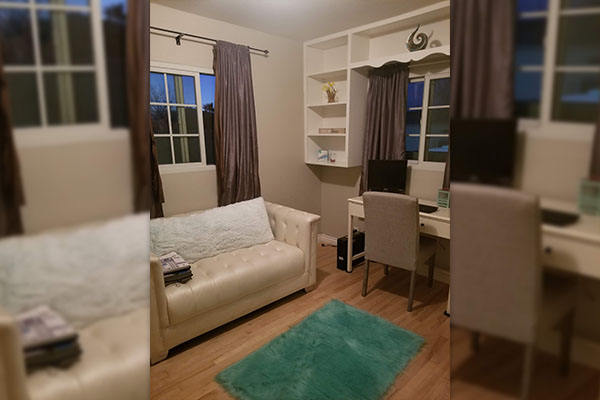
Before you get there, is there an apology before you can get to that next step?
Absolutely, there’s an apology.
I would think that’s part of the process.
Everyone wants to be healthy. We just don't have the understanding of what that looks like. Share on XSometimes we don’t have the words to make amends in the way in which you say, “I’m sorry that I took all your DVDs and pawned them at the pawnshop.” Sometimes we don’t have the words. Sometimes the apology in words it’s not deep enough to penetrate the pain that we have incurred or instilled upon our loved one. That is why I encourage the young lady to call her daughter and say I love you. Sometimes the apology is in the healing.
Utilizing the words, “I love you. I’m doing better, and I hope to see you on this journey,” is the apology. Sometimes our family members have to know that. I will put it this way. I don’t want to put absolutes and demands on anyone. I hope that family members can understand and even look at their own journey and go, “There was a time in my life when I should’ve apologized to someone but I didn’t know how. I didn’t know what for. It’s such a plethora of things. How do I do that? Do I write a 50-page novel and say, ‘I’m sorry about all the things I did to you or do I change? When that person allows me to come back into their life, never hurt them in that way again.”
Let that be the apology. My mother was very abusive and what she did to me was like would do it, then apologize. Sorry and apology means nothing to me. Behavior means everything to me. I look for action. Love is an action word to me. It’s not this euphoric feeling that we are all gushy on the inside but it is the things that we are willing to do and the sacrifices that we are willing to make for those that we truly care about. That is the biggest form of apology to me. It’s when I look up and no longer feel afraid that you are going to hurt me again. I feel safe.
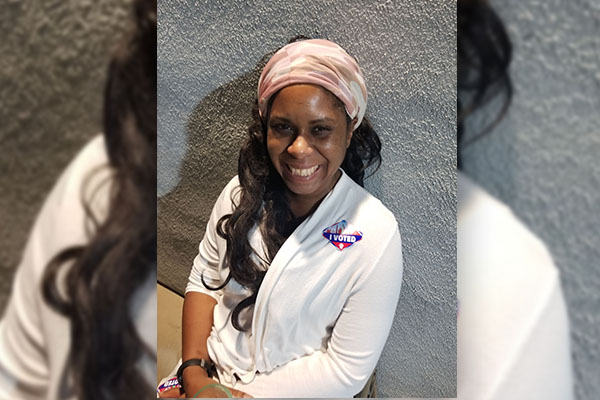
I want to say that I know you lead by example. As an example, for all the ladies and your family, you are helping them see everything that you are saying. I also think that everything that you spoke about, everybody can’t see me but I’m over here shaking my head. I’m thinking that this is also going to help all the families that are reading because a lot of times, they don’t understand or don’t know. Everything that you shared is so helpful that when they are talking to their loved ones and hearing or not hearing what they think they need to hear but they are seeing action. That means more. I want to thank you for all that.
That almost made me tear up because, for the first time in my life, I felt safe. I have not felt safe ever before. Now I have these amazing people in my life. My relationships are very solid and I feel like my behaviors are very much in line with where I’m going. Not where I have been. I feel like I have been blessed with no more need for apologies. No more need to hear or say the word sorry.
It means so much to me. I am so grateful for the mended relationships that I have now and what they have done and taught me along the way. I will say this too, where family is concerned. In some relationships, they need not to continue, just because your blood doesn’t mean that you are healthy for one another.
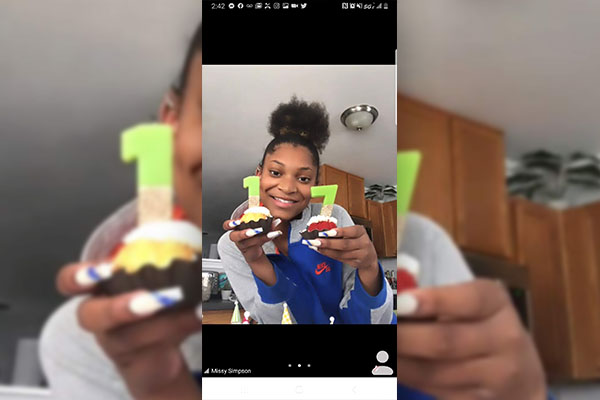
Sometimes you have to learn how to let go and know that’s the best possible thing for both parties. That was a hard lesson but it has afforded me such safe spaces and relationships. I do realize that it’s not all about the individual that has gone to prison. It’s about the entire network that they are associated with. I hope that through this show, family members take a long look in the mirror and make a list of the things that they truly want and be honest with themselves. Transparency and integrity need to be on both sides. Sometimes, we grit the bullet or bite the bullet because we think we have to love that person, and you don’t. You can love them from afar to keep yourself healthy too. That, in turn, will create safe spaces for that person that you love that has gone to prison.
That honesty, transparency, and healing, is a journey on both sides. I know your journey has been long, and you’ve come so far. I know you still have this vision of things that you want to do. Let’s talk about that big hairy goal that I know it’s going to happen because I know when Vera puts her mind to something, it happens.
It’s so funny that you say that because I drove past this apartment complex where I have been living in this area for years. I so happened to be a passenger in the car at the time. I was like, “When did that get there?” It’s this dilapidated building but I was drawn to it. Now I never not see it. We are trying to figure out how we are going to go about, “Do I go in and take it over?” It’s like planting a flag in the yard and go, “This is mine.” The ultimate goal is to create a very safe healing environment for the children attached to formerly incarcerated women and people. Not just women but men and women.
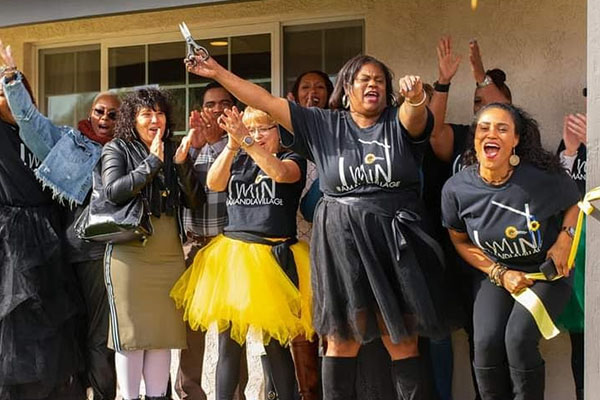
We want to build Amandla Village. It means empowerment. This village will be a housing campus for men and women who are coming home from incarceration. They want to truly get what they need to change their lives around and raise their children while doing it. They understand that it’s more than them and need a safe space that’s going to allow them to do that. I see this campus where once a month, people are coming out of their homes and have Sunday dinner together.
There’s a splash pad so that the kids can play on the water. A theater so that if they don’t have Netflix in their home or an Xbox, they can go into this little small theater and could still play the games so that everyone is included and not feel like they are set apart because their family doesn’t make a bunch of money or their parents haven’t been able to find employment. I see this space being where when kids are playing on the playground, they feel good about having a conversation with their friends because they know that their friends have something in common with them.
They become little comrades and start building and dreaming about not doing what their parents did. Now there’s a safe environment where they can go to the library and can have book clubs. They can enjoy life, and their parents are getting therapy and business classes so that they can build their own businesses. Family marriage counseling and learning the art of home ownership so then they start reaching for the goal of generational wealth and building equity for their family. We get caught in these perpetual cycles of, “This is all we have. This is all we are going to get. This is all we deserve.”
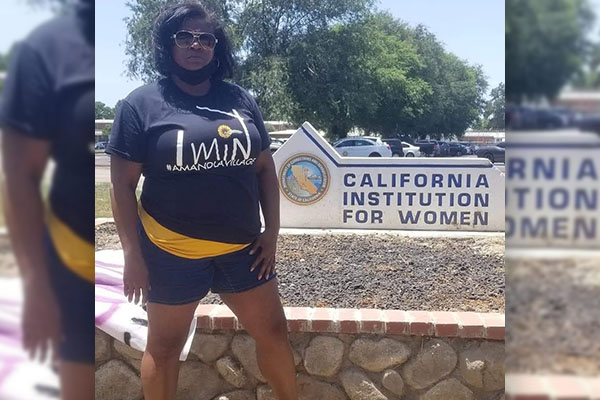
When you put people in healthy, safe, loving, clean, beautiful environments, they flourish. I won’t say everyone but I have seen it happen. Julia, you’ve seen Divinity House. Imagine if we made this huge Divinity Campus, and everyone was getting what they needed in that space. If they did it, we had the resources to make sure that they would but the goal of it all is that they would never have to worry again about picking up the phone to find an apartment and being asked, “Have they ever been incarcerated?” Like I said at the beginning of this story, that was the thing that resonated with me most. It was like, “How can you keep my mistake?” At that time, it was a mistake. It was something that I did without foresight based on emotions.
At that time, I felt some way about this woman holding that over my head. Amandla Village, we need to raise $5 million. We need all the champions we can get, so spread the word. We need to invite more people to the awareness camp, meaning that they are willing to volunteer, assist, and do all of the things. We need donors because we need $5 million to get this thing up off the ground, and everything else will come. Imagine, as a family member, you have someone, your daughter, your son have come home from incarceration and needs a safe place to go.
They are demonstrating all the things that they need to grow and be better. They don’t have a place to live, and they can’t live with you. Tidy keeps them in this perpetual cycle of in and out of incarceration. What if they could come home to a happy, healthy apartment and have the kids and now you get your life back. It’s because this campus is associated with healing, and that’s what we focus on, you know that those kids are in good hands. It won’t just be the parent raising them but it will be a community raising them.
It will be a tribe raising them then you can live your life. Amandla Village, I want to break ground by 2023. I saw this apartment complex, and it’s eight units. It has about enough land to put another couple of buildings on that land. If I can get my hands on that, Julia, I would be able to get at least get ten families going. That would mean everything to me because my goal isn’t to change the world. My goal is to change my world.
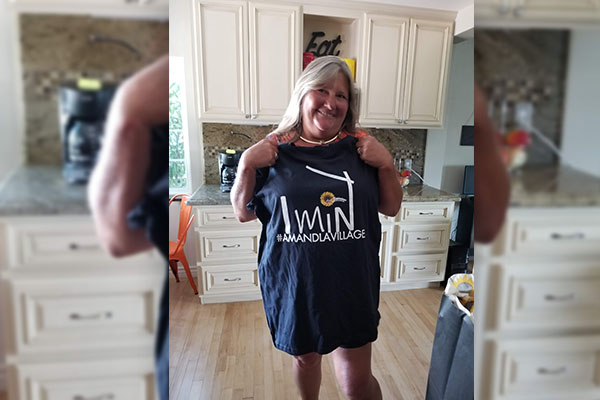
I’m hoping that in my world, somebody will also decide to change their world. It will keep bleeding out into our community. We are back to having a barbecue outside and our kids are happy and healthy again and thriving in school. We get away from the testing. They are learning stuff so that they will be productive citizens in our community. It’s all about the kids.
It’s true. It’s planting a seed and watching it grow. We take care of what we can have control over. When we do that, it grows. As you said, all those people that are coming in, that are getting healed, they will go out, do good things, and perpetuate. That’s how we make it a better world. I want to thank you so much for your time.
Thank you for having me. I appreciate it. I only cried one time, so that’s good. I’m getting good.
That’s so much information and you are doing good. You are doing so much good. To be able to share this with people is what it’s all about. Getting the word out and letting people know all the good things that are going on. We hear about all these horrible things. Let’s look at some good things. Look at the good work that Vera is doing. Thank you, Vera.
My pleasure. We have another house opening in November. It will be an independent living house. If you have a family member that is formerly incarcerated and they are working but cannot get back on their feet because the rents are skyrocketing, please send them to us. We would love to work with them and help them get their budget and their credit and everything altogether while they live in this amazing safe space so that they will be able to flourish. You will not only be happy to be around them but you will be proud of the work that they are doing.
Let’s keep it going.
Thank you so much, Julia. I appreciate you and the family that’s reading.
Important Links
- True Beginnings
- Prison Families Alliance
- https://www.Facebook.com/TrueBeginningsLasVegas/
- https://www.Instagram.com/true_beginnings_lv/
- https://YouTube.com/channel/UCnHRP3YTww9mZjnfMFZ2Vsw
About Vera Moore
 Ms. Vera Moore, a formerly incarcerated woman and community activist has made it her mission to support and guide other women through the process of reentry from a trauma-responsive gender-informed approach. Ms. Moore founded True Beginnings in Hampton, VA in 2013 and moved it to Las Vegas in 2016, providing reentry services to both men and women returning from incarceration as a means to lessen recidivism. She has been recognized by the former Governor of VA and various universities’ staff for her work around voting restoration and criminal reform. In addition to Ms. Moore’s opening of the first trauma-responsive safe house in Southern Nevada for formerly incarcerated women in 2019, Ms. Moore is an author and content creator hoping to dismantle the various stigmas associated with criminal backgrounds.
Ms. Vera Moore, a formerly incarcerated woman and community activist has made it her mission to support and guide other women through the process of reentry from a trauma-responsive gender-informed approach. Ms. Moore founded True Beginnings in Hampton, VA in 2013 and moved it to Las Vegas in 2016, providing reentry services to both men and women returning from incarceration as a means to lessen recidivism. She has been recognized by the former Governor of VA and various universities’ staff for her work around voting restoration and criminal reform. In addition to Ms. Moore’s opening of the first trauma-responsive safe house in Southern Nevada for formerly incarcerated women in 2019, Ms. Moore is an author and content creator hoping to dismantle the various stigmas associated with criminal backgrounds.

Leave a Reply